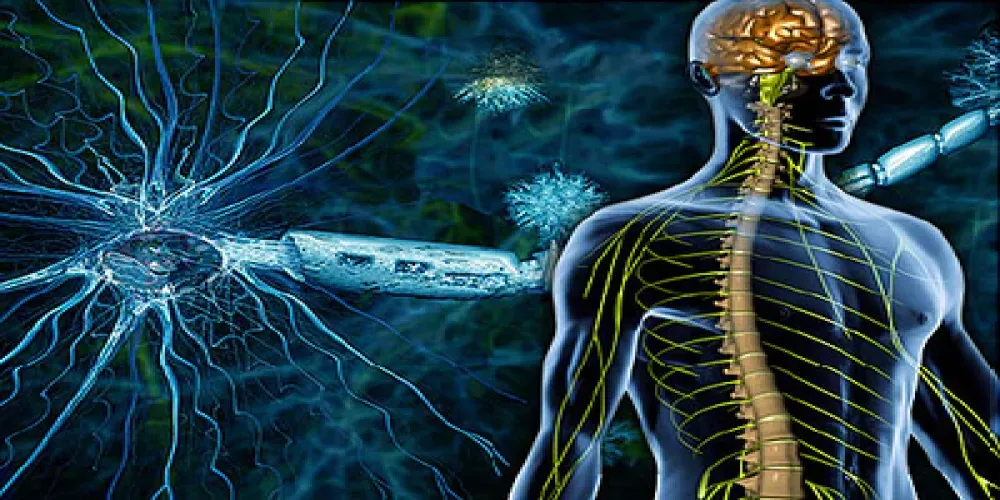German phrases about Multiple sclerosis

German phrases about Multiple sclerosis.Multiple Sclerosis (MS) remains a puzzling and challenging disease for both scientists and clinicians alike. Characterized by its unique set of challenges from diagnosis to treatment and even understanding the factors that lead to its onset MS is a disease that affects the central nervous system, resulting in a wide range of symptoms that can range from mild to severe.

German phrases about Multiple sclerosis
| German Phrase | English Translation | Context or Explanation |
|---|---|---|
| Multiple Sklerose (MS) | Multiple Sclerosis (MS) | The name of the disease |
| zentrales Nervensystem | central nervous system | Part of the body affected by MS |
| Schubförmig-remittierende MS | Relapsing-remitting MS | A common type of MS |
| primär progrediente MS | Primary-progressive MS | Another type of MS |
| Immunsystem | Immune system | The body system involved in MS |
| Magnetresonanztomographie (MRT) | Magnetic Resonance Imaging (MRI) | A diagnostic tool for MS |
| neurologische Untersuchung | neurological examination | An examination used for diagnosis |
| Kortikosteroide | Corticosteroids | A common treatment for MS relapses |
| körperliche Therapie | physical therapy | A supportive treatment for MS |
| Fatigue | Fatigue | A common symptom of MS |
| Sehstörungen | Visual disturbances | A symptom that often occurs in MS |
German sentenses about Multiple sclerosis
| German Sentence | English Translation |
|---|---|
| Multiple Sklerose ist eine chronische Erkrankung des zentralen Nervensystems. | Multiple Sclerosis is a chronic disease of the central nervous system. |
| Die genaue Ursache von Multiple Sklerose ist noch unbekannt. | The exact cause of Multiple Sclerosis is still unknown. |
| Es gibt verschiedene Formen von Multiple Sklerose, darunter schubförmig-remittierende MS und primär progrediente MS. | There are various forms of Multiple Sclerosis, including relapsing-remitting MS and primary-progressive MS. |
| Die Diagnose erfolgt oft durch eine Magnetresonanztomographie (MRT) und neurologische Untersuchungen. | The diagnosis is often made through Magnetic Resonance Imaging (MRI) and neurological examinations. |
| Kortikosteroide werden häufig zur Behandlung von Schüben verwendet. | Corticosteroids are often used for treating relapses. |
| Fatigue ist eines der häufigsten Symptome von Multiple Sklerose. | Fatigue is one of the most common symptoms of Multiple Sclerosis. |
| Die Lebensqualität kann bei Patienten mit Multiple Sklerose beeinträchtigt sein. | Quality of life can be compromised in patients with Multiple Sclerosis. |
Symptoms of multiple sclerosis in German
| German Symptom | English Translation |
|---|---|
| Müdigkeit | Fatigue |
| Sehstörungen | Visual disturbances |
| Taubheitsgefühl | Numbness |
| Gangstörungen | Gait disturbances |
| Muskelsteifheit | Muscle stiffness |
| Schmerzen | Pain |
| Harninkontinenz | Urinary incontinence |
| Gedächtnisprobleme | Memory problems |
| Schwierigkeiten beim Sprechen | Difficulty speaking |
| Zittern | Tremors |
| Gleichgewichtsprobleme | Balance issues |
| Lähmungserscheinungen | Signs of paralysis |
| Konzentrationsschwäche | Poor concentration |
| Doppelbilder | Double vision |
| Emotionale Schwankungen | Emotional fluctuations |
Causes of multiple sclerosis in German
| German Term | English Translation |
|---|---|
| Unbekannte Ursache | Unknown cause |
| Autoimmunreaktion | Autoimmune reaction |
| Genetische Veranlagung | Genetic predisposition |
| Virusinfektionen | Viral infections |
| Umweltfaktoren | Environmental factors |
| Vitamin-D-Mangel | Vitamin D deficiency |
| Rauchen | Smoking |
| Stress | Stress |
| Hormonelle Faktoren | Hormonal factors |
| Ungesunde Ernährung | Unhealthy diet |
In conclusion, Multiple Sclerosis remains one of the most enigmatic and challenging diseases confronting both medicine and science today. Despite significant advancements in scientific research and medical technology, much remains unknown about the factors contributing to the onset of this disease and how to effectively treat it.






























